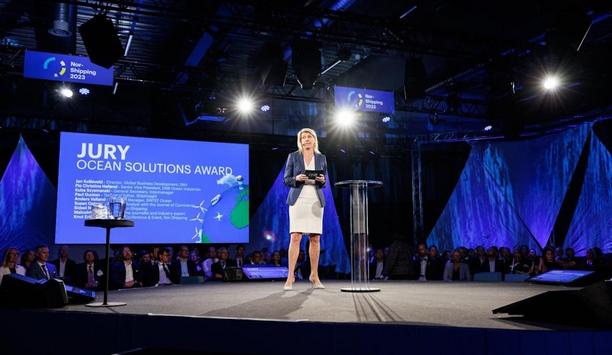To make sure the customers’ sustainability objectives are met, when transporting their products across the globe, A.P. Moller – Maersk has announced a more ambitious climate neutral target.
The goal is to reach net zero greenhouse gas emissions, across the entire business, by 2040, one decade ahead of the initial 2050 ambition.
Maersk's Net zero carbon targets
Mads Stensen, the Senior Sustainability Advisor at Maersk, said “More than half of Maersk’s top 200 customers have ambitious science-based or zero carbon targets for their supply chain and they are dependent on us helping them reaching these targets. With our new climate neutral commitments, we can help our customers on this journey, as well as help drive the whole industry towards this goal.”
We take this responsibility to pursue climate neutrality very seriously for our customers"
Mads Stensen further said, “We take this responsibility to pursue climate neutrality very seriously for our customers, our people, the society at large and the environment. Tackling this challenge will require extensive data insights and close collaboration with local and regional suppliers of products and services, across the Maersk business footprint.”
Net zero criteria of the Science Based Targets initiative
The targets aim to align Maersk with a 1.5°C pathway and the net zero criteria of the Science Based Targets initiative (SBTi) and cover all emission scopes. This will be achieved through a decade of actions, backed up by a series of similarly ambitious 2030 targets, both for direct emissions and Maersk’s green offerings across a broad range of the product portfolio. These are:
- On ocean
25% of all cargo will be transported using green fuels. The 2021 volume growth tripled for Maersk ECO Delivery product, showing continued high customer demand for their green ocean solutions.
Maersk continues to see opportunities to further develop this, creating a runway for more growth towards the introduction of the newly designed green methanol fuelled vessels in 2023-2025.
- On air
A minimum of 30% of cargo will be transported using Sustainable Aviation Fuels (SAF). Maersk’s air emissions currently make up less than 1% of the total emissions, but are set to increase with the growth projected to serve the customers.
Their sustainable and efficient air freight offering is based on a strong collaboration with their carrier partners (ex. United’s Eco-Skies Alliance) and synergies from the fuel development activities, including potential engagement in SAF development and production.
- On land
Detailed targets will be introduced during the year of 2022. Maersk’s landside footprint is mainly indirect emissions from truck, rail and barge suppliers – local businesses where energy infrastructure and regulation decide the reduction potential. The company will set a target for 2030, after thorough assessment of the current supplier and operating network. These initiatives will include:
- Efficiency measures and promotion of modal shift from conventional truck to lower emission transport modes.
- Development of green alternatives and electrified transport based on renewable energy, where Maersk is already on the move with train services.
- Investing in innovations and strong partnerships in this field.
Contract Logistics and Cold Chain
Maersk has committed to a minimum of 90% green operations. Their global portfolio of dry and reefer warehouses and depots will serve the company’s customers with green contract logistics operations (scope 1 and 2) by 2030. This will be achieved through:
- Retrofitting of existing footprint and new projects receiving state-of-the-art accreditation.
- Electrification of assets.
- Lower climate-impact refrigerants, such as CO2 or ammonia in reefers.
Creating a sustainable future for supply chains and logistics
A.P. Moller - Maersk is proud of all the steps that they as a company are going to take
A.P. Moller - Maersk is proud of all the steps that they as a company are going to take, but to achieve these ambitious goals, they can’t walk alone. The company needs customers and the rest of the players in the industry to commit to comparable targets, so that the effort is strong and fuelled by collaboration.
Moreover, global regulation must be introduced to steer the right behaviour and create a true level playing field. The IMO (International Maritime Organization) so far moved at a slower pace than was hoped, but it is the right body to steer everyone forward. Before the end of 2023, the IMO should secure significant progress towards the adoption of a global target for shipping for net zero in 2050 or earlier.
Maersk will work hard to create a sustainable future for supply chains and logistics, in a way that is visible to all the customers and are looking forward to collaborate with everyone to make this a reality.












